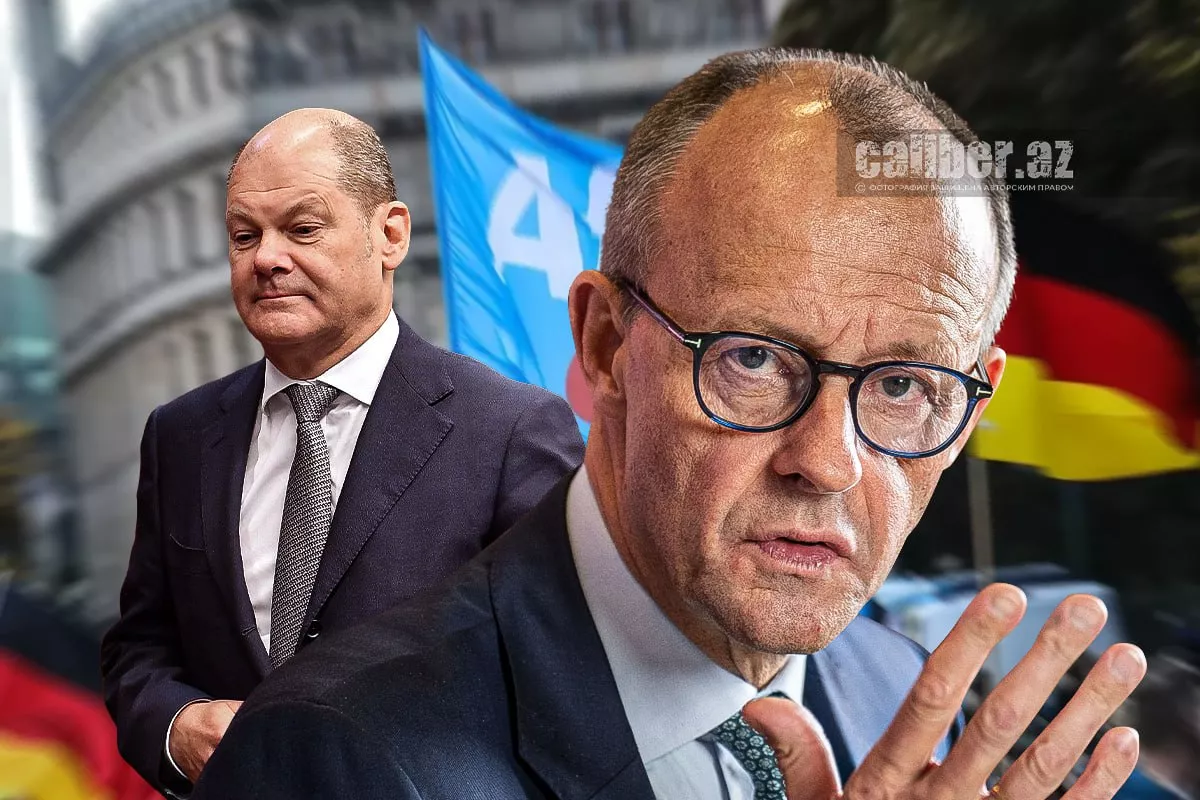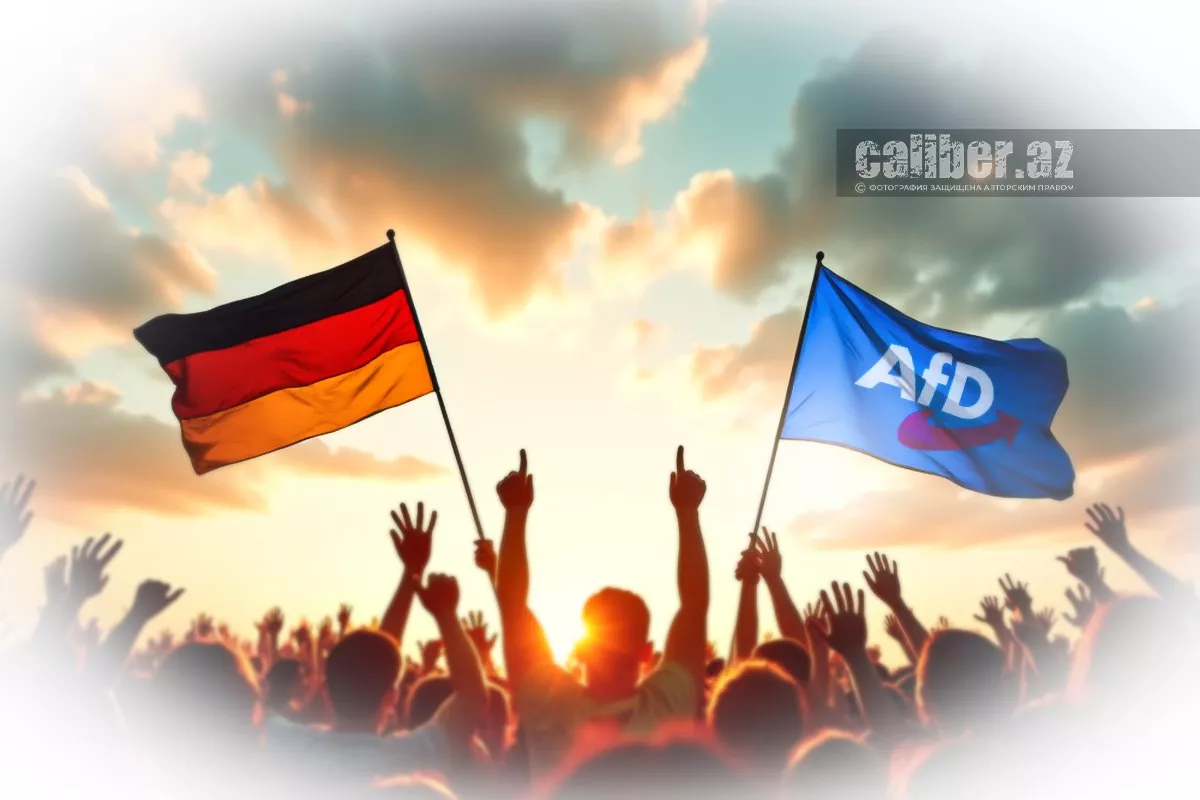Political crack in Germany and AfD’s elation Friedrich Merz fails the first-round vote
Another political crack—perhaps more accurately, a full-blown political fiasco—in Germany. Friedrich Merz, the leader of the conservative CDU/CSU bloc, has failed to secure the minimum number of votes needed in the Bundestag to be elected chancellor on the first attempt. In the secret ballot, he received only 310 votes—six short of the required threshold.
This detail reveals something crucial: considering Merz had previously reached a coalition agreement with the SPD, the vote exposed that nearly twenty coalition MPs refused to back his candidacy.
A cold shower—or perhaps a hot one? More likely a contrast shower, given that this crisis marks an unprecedented moment in Germany’s political history. Never before has a chancellor failed to be elected on the first ballot.
The second vote, held just a few hours after the historic political debacle, did result in Merz becoming chancellor—but the bitter aftertaste will undoubtedly linger for a long time for both the politician and the coalition. This episode will surely make its way into many German textbooks.
Following the failed first attempt, some analysts sarcastically wondered whether members of the ruling conservative bloc would now try to blame the Alternative for Germany (AfD) for the fiasco. The question, of course, was laced with irony—but the fact remains: just as the now-defunct “traffic light” coalition previously blamed the right-wing AfD for all its domestic missteps, Merz and company also tend to point fingers at that party for the country’s problems.
In reality, Merz’s initial failure also reveals a deeper issue—the lack of unity within the newly formed CDU/CSU–SPD coalition.

In a broader sense, the incident signals a complete collapse in Germany’s political life. Until recently, Merz had been confidently positioning himself not just as the leader of Germany, but as a statesman restoring Berlin’s political standing in Europe—and globally.
His early steps on this path included efforts to bolster the country’s defence capabilities, tighten migration policy, and, most notably, assert an independent stance in relation to the actions of Donald Trump’s administration. Just a day before the vote, Merz had confidently pledged to deliver “reliable and strong leadership” for Germany.
Moreover, in the widely publicised inter-coalition agreement—if one may call it that—on Germany’s political horizon, a nearly 150-page document titled "Responsibility for Germany", the parties, under the banner of a “comprehensive renewal” of the state, declared themselves jointly responsible for implementing that vision.
But what now, after such a major blunder—one that struck directly at the so-called “parties of the political centre”? What becomes of that proclaimed responsibility, when the coalition has just demonstrated its internal disunity? By failing to ensure Merz’s election as chancellor on the first try, coalition members have effectively admitted that tomorrow, too, this “political symbiosis” might collapse at the very moment a crucial decision must be made for Germany’s future.
Naturally, Merz’s (albeit initial) failure gave a boost to the AfD. Its co-chair, Alice Weidel, highlighting the "ephemeral foundation" on which the so-called “small coalition” stands, called for new elections. According to her, the coalition’s fiasco marked “a good day for Germany.”

According to several experts, the events in the Bundestag yesterday are likely to spark an even greater political attack on Berlin from the Trump administration. This is especially true given Germany’s official designation of the AfD as an "extremist organisation," which has provoked sharp discontent from the White House. U.S. Secretary of State Marco Rubio, speaking on behalf of the administration, referred to Berlin as “not a democracy, but a tyranny in disguise” where the domestic intelligence service “monitors the opposition.” Furthermore, U.S. Vice President JD Vance went as far as equating “German bureaucrats” to those who built the Berlin Wall.
Yes, Germany’s Ministry of Foreign Affairs countered by stating that the country’s history has taught its people the need to combat right-wing extremism, which is what democracy entails. Nevertheless, the ideological (and not only ideological) rift between Berlin and Washington is evident.
At the same time, the economic aspect is undoubtedly also a key factor in the chancellor election. In general, Germany’s economy has long been grappling with significant issues. Today, the country faces stagnation, with GDP growth forecasted at a mere 0.0%. Notably, Berlin has become the only G7 nation unable to achieve economic growth over the past three years. In light of this, experts emphasise that Germany’s market has long been living in anticipation of necessary economic stimulus measures, particularly in the context of predictions for a modest recovery in 2026, with GDP growth estimated at around 1.0%.
However, Merz’s "chancellor failure" has led several analysts to question whether the new government will be able to pull Germany out of its economic crisis, given the coalition’s lack of unity in the very process of electing Merz as chancellor. This angle is currently one of the most discussed, not only in Germany but also abroad.
One way or another, the fact remains: the political crack caused by Merz’s failure to be elected chancellor on the first attempt has exposed the instability of the ruling coalition in Germany. In other words, according to many experts, Merz will have to govern under the Damocles' sword of a potential conflict of interests within his government.








